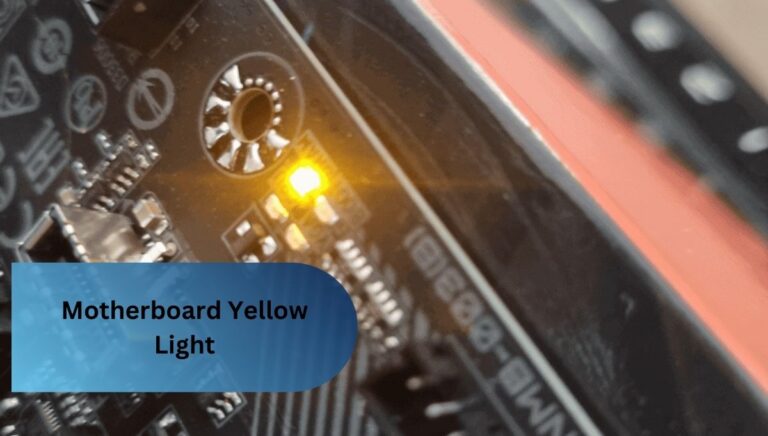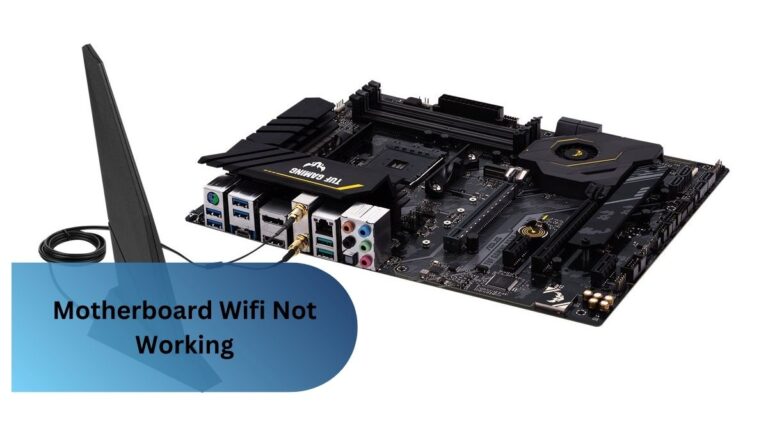Can I Use 1866mhz Ram On 1600 Motherboard – A Compressive Guide!
When you tried using 1866MHz RAM on my 1600MHz motherboard, it worked without any issues, but it only ran at 1600MHz. It was a bit disappointing not to get the full speed, but I appreciated the extra capacity for future upgrades.
Yes, you can use 1866MHz RAM on a 1600MHz motherboard, but it will only operate at 1600MHz speed. Think of it as having a sports car that can only drive at city speed limits.
Introduction Can I Use 1866mhz Ram On 1600 Motherboard
When considering whether you Can I Use 1866mhz Ram On 1600 Motherboard
, it’s important to know that it will only run at the motherboard’s maximum speed of 1600MHz. The question, “Can I Use 1866mhz Ram On 1600 Motherboard?” is common among those looking to upgrade their systems.
While the 1866MHz RAM will work fine, the performance benefits of the higher speed won’t be realized due to this limitation. Ultimately, the answer to “Can I Use 1866mhz Ram On 1600 Motherboard?” is yes, but with the understanding of speed constraints.
What Determines RAM Compatibility?

RAM compatibility is determined primarily by the motherboard’s specifications, including supported RAM types, speeds, and maximum capacity. Additionally, the number of available RAM slots and whether the RAM modules are single or dual-channel also play a crucial role. Finally, the voltage requirements of the RAM must match what the motherboard can provide for optimal performance.
1. Understanding RAM Speeds:
Understanding RAM speeds is essential for optimizing computer performance. RAM speed, measured in megahertz (MHz), indicates how quickly data can be read from or written to the memory. Higher speeds generally lead to faster data processing, improving overall system responsiveness, especially in demanding applications like gaming or video editing.
Read Also: Are All Ssd Compatible With All Motherboards – Discover The Possibilities!
Exploring Ram And Motherboard Compatibility
1. Key Factors for Compatibility:
- Motherboard Specifications: Check the motherboard’s manual for supported RAM types, speeds, and maximum capacity to ensure compatibility.
- RAM Type: Ensure the RAM matches the type required by the motherboard, such as DDR4 or DDR5, as they are not interchangeable.
- Slot Configuration: Consider the number of available RAM slots and whether you plan to use single or dual-channel configurations for optimal performance.
- Voltage Requirements: Verify that the RAM’s voltage matches what the motherboard supports, as mismatched voltages can lead to instability or failure to boot.
2. RAM Types and Their Impact:
RAM types, such as DDR4 and DDR5, significantly impact system performance and compatibility, as each type has different speeds and features. Using the correct RAM type for your motherboard ensures optimal data transfer rates and overall efficiency in running applications.
3. Speed Limitations and Performance:
Speed limitations occur when the motherboard restricts the RAM to its maximum supported speed, preventing faster modules from reaching their full potential. This can impact overall performance, especially in tasks that require high data transfer rates, such as gaming or heavy multitasking.
Can I Mix 1600 And 1866 Ram?
You can certainly combine 1600 MHz and 1866 MHz RAM, but they will both function at the slower speed of 1600 MHz. This means that while the 1866 MHz RAM adds extra capacity, you won’t experience its full speed advantage.

Mixing different RAM speeds can occasionally cause stability problems, so it’s wise to verify that your motherboard supports this combination. In the end, while it’s feasible to mix these RAM types, you may not see a noticeable performance boost.
1866mhz Ram On 1600mhz Motherboard
Using 1866MHz RAM on a 1600MHz motherboard is possible, but the RAM will only operate at the lower 1600MHz speed. This means you won’t fully utilize the faster capabilities of the RAM, but it will still function properly without any issues. It’s a good option if you’re planning to upgrade your motherboard in the future, as the higher-speed RAM can be beneficial then.
Can I Use 1866mhz Ram On 1333mhz Motherboard?
- Compatibility Check: You can use 1866MHz RAM on a 1333MHz motherboard, but it will only run at the motherboard’s maximum speed of 1333MHz.
- Performance Impact: Although the RAM will function, you won’t experience the enhanced performance benefits that come with higher speeds, as the system is limited by the motherboard.
- Future-Proofing: Installing 1866MHz RAM can be a smart choice if you plan to upgrade your motherboard later, allowing you to take advantage of faster speeds in the future.
- Mixed RAM Speeds: If using multiple RAM modules with different speeds, all modules will operate at the speed of the slowest one, which in this case would be 1333MHz.
1866mhz Ram To Be Used With Lower Timings (1333mhz Bus Cpu).
Using 1866MHz RAM with a CPU that has a 1333MHz bus can lead to slower performance due to the bus speed limitation. While the RAM will still work, it will downclock to match the CPU’s speed, potentially affecting data transfer efficiency. However, this setup can provide room for future upgrades, as the RAM will be ready for a faster system when you decide to upgrade your CPU.
Read Also: What’s The Best Motherboard For Gaming – Choosing The Right One For Your Setup!
Can I Upgrade Ram Memory From 1600 Mhz To 1866 Mhz?

Yes, you can upgrade RAM memory from 1600 MHz to 1866 MHz, but there are a few considerations to keep in mind. Your motherboard must support the higher speed to take full advantage of the upgrade. If it doesn’t, the 1866 MHz RAM will still work but will operate at the maximum speed allowed by the motherboard, which could be 1600 MHz.
1. Key Points to Consider:
- Motherboard Compatibility: Check the motherboard specifications to confirm it supports 1866 MHz RAM.
- Mixing Speeds: If you install 1866 MHz RAM alongside 1600 MHz RAM, all modules will run at the speed of the slowest one.
- Performance Gain: Upgrading can improve performance in memory-intensive tasks if your system supports the higher speed.
- Future Upgrades: Having 1866 MHz RAM can be beneficial for future upgrades, allowing you to maximize performance when you upgrade your CPU or motherboard.
FAQ’s
1. Downsides To Using 1866mhz RAM In A 1600mhz DIMM Slot?
Using 1866MHz RAM in a 1600MHz DIMM slot means the RAM will only operate at 1600MHz, missing out on its potential speed benefits. This can lead to slower performance in tasks that rely on fast data transfer, limiting overall system efficiency.
2. Using 1866 Memory On A Motherboard That Only Supports Ddr3 1600?
Using 1866 MHz memory on a motherboard that only supports DDR3 1600 is possible, but the RAM will run at the slower 1600 MHz speed. This means you won’t benefit from the faster performance of the 1866 MHz memory, but it will still function reliably.
3. Memory Rated At 1866mhz But Motherboard Can Only Handle Up To 1600mhz?
When memory is rated at 1866 MHz but the motherboard can only handle up to 1600 MHz, the RAM will automatically run at the lower speed. This means you won’t get the full benefits of the faster memory, but it will still work without any problems.
4. How important is RAM compatibility with a motherboard?
RAM compatibility with a motherboard is crucial because incompatible RAM can prevent your system from booting or functioning properly. Ensuring that the RAM type, speed, and voltage match what the motherboard supports helps maintain stability and optimal performance.
5. Will using mismatched RAM cause issues?
Mixing RAM can sometimes lead to stability issues, so it’s important to check your motherboard’s compatibility.
Conclusion:
You can use 1866 MHz RAM on a 1600 MHz motherboard, but it will run at the lower 1600 MHz speed. While you won’t fully utilize the RAM’s potential, it can still provide benefits like improved capacity for multitasking.
If you plan to upgrade your system in the future, this setup allows for an easy transition to faster memory.
Read More:






